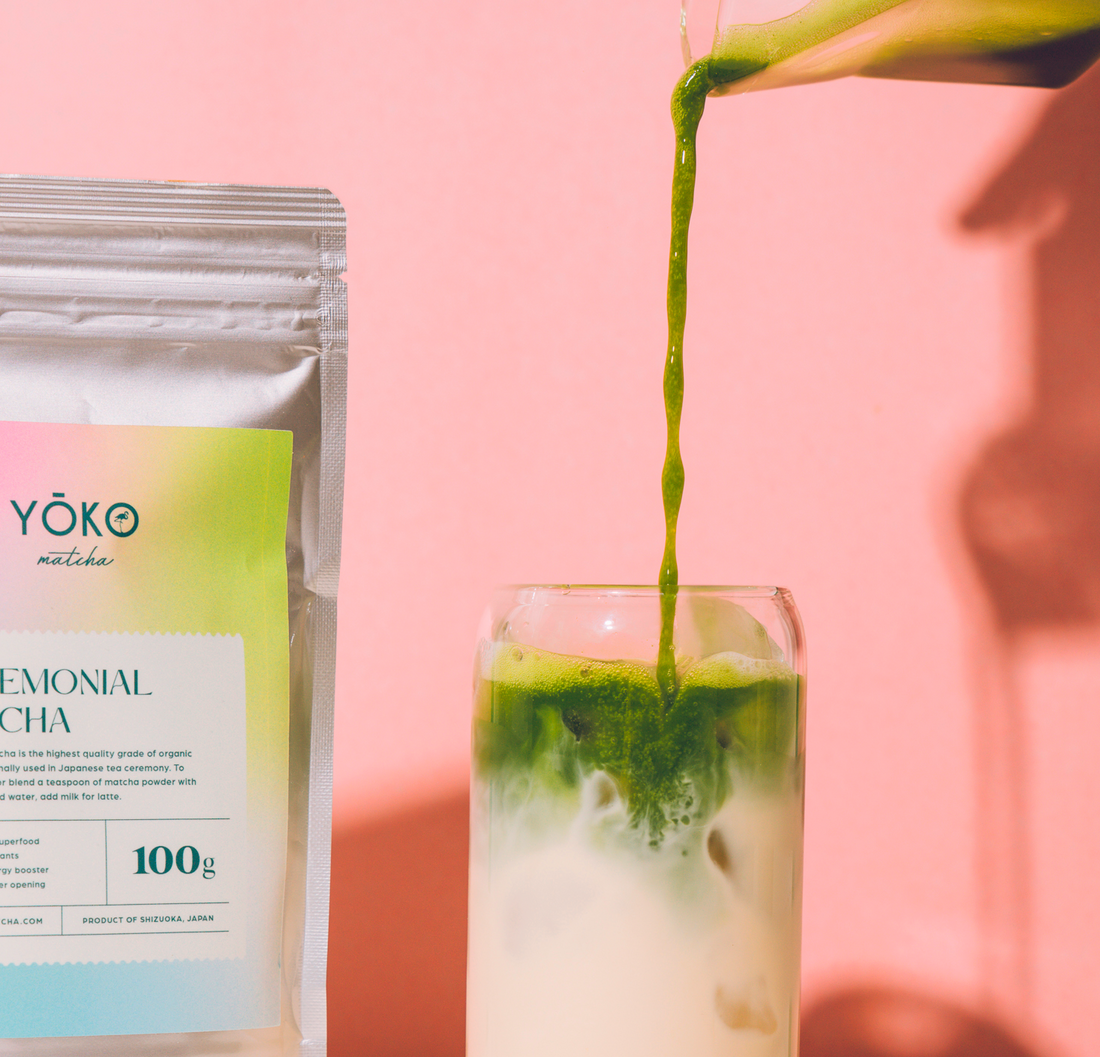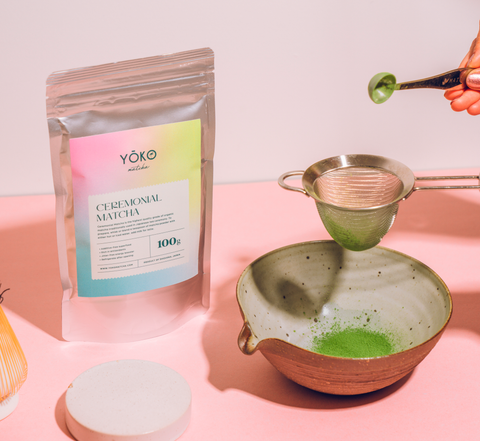Outline:
1. Introduction
2. What is Matcha?
3. The Myths Surrounding Matcha and Digestion
- Myth 1: Matcha Causes Immediate Bowel Movements
- Myth 2: Matcha is a Laxative
- Myth 3: Matcha Causes Diarrhea
4. The Role of Caffeine in Matcha
5. Matcha and Digestive Health
- The Role of Fiber
- The Role of Chlorophyll
- Promoting Gut Health
6. Is Matcha Suitable for Everyone?
- Individual Reactions to Matcha
- Moderation is Key
7. How to Incorporate Matcha Into Your Diet
- Traditional Matcha Preparation
- Matcha Smoothies
- Matcha Lattes
8. Conclusion
10. FAQs
Introduction
Matcha, a vibrant green powdered tea, has gained popularity in recent years for its potential health benefits and unique flavor. However, some people have expressed concerns about its impact on digestion and whether it can cause unexpected bathroom visits. In this article, we will delve into the topic of matcha and its effects on the digestive system, debunking myths, and shedding light on its true health benefits therein.
What is Matcha?
"Matcha tea is a type of green tea that originates from Japan. Unlike traditional green tea, where leaves are steeped in hot water and then discarded, matcha involves consuming the entire powdered green tea or leaf. This process amplifies its nutrient content, making it a concentrated source of antioxidants, vitamins, and minerals.
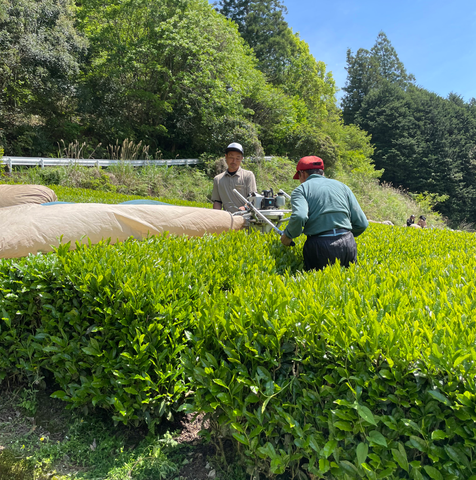
The Myths Surrounding Matcha and Digestion
Myth 1: Matcha Causes Immediate Bowel Movements
One common misconception is that drinking matcha leads to urgent trips to the restroom shortly after consumption. While some individuals may experience this, it is not a universal reaction. Factors such as individual tolerance and sensitivity to caffeine and other compounds in matcha can play a role in how it affects the digestive system.
Myth 2: Matcha is a Laxative
Another myth is that matcha acts as a natural laxative. While it does contain some caffeine, which can have a mild stimulatory effect on the bowels, matcha is not a traditional laxative. The caffeine content in matcha is generally lower than that of coffee, and its impact on bowel movements is usually subtle.
Myth 3: Matcha Causes Diarrhea
Some individuals have reported experiencing diarrhea after consuming matcha. However, this is not a direct result of drinking matcha itself but rather an individual's reaction to it. Like any food or beverage, some people may be more sensitive to the matcha green tea's components, leading to gastrointestinal discomfort.
The Role of Caffeine in Matcha
Caffeine is a natural stimulant found in various foods and beverages, including matcha. In moderate amounts, caffeine can have positive effects on alertness high concentration and cognitive function. However, excessive consumption of caffeine can lead to negative side effects such as restlessness and insomnia.
Matcha and Digestive Health
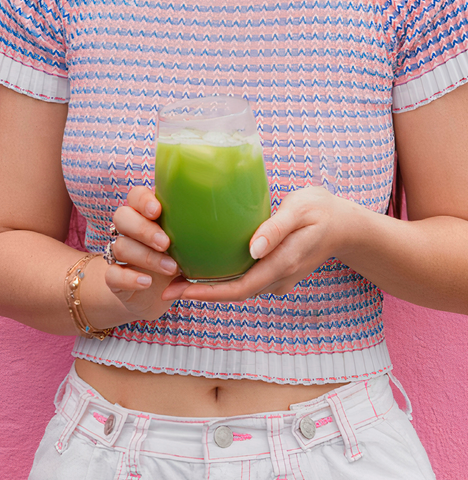
The Role of Fiber
Matcha contains dietary fiber, which is beneficial for digestive health. Fiber aids in regular bowel movements and can help prevent constipation.
The Role of Chlorophyll
The vibrant green color of matcha comes from chlorophyll, a natural pigment found in plants. Chlorophyll may have detoxifying properties and support a healthy, digestive system and immune system.
Promoting Gut Health
The combination of powerful antioxidants alone, fiber, and chlorophyll in matcha can contribute to a balanced gut environment, promoting the growth of beneficial gut bacteria.
Is Matcha Suitable for Everyone?
Individual Reactions to Matcha
As with any food or beverage, individual reactions can vary. Some people may be more sensitive to matcha's components, while others may tolerate it well.
Moderation is Key
If you are new to consuming matcha, it is best to start with a small amount to gauge your tolerance. Moderation is essential to avoid any potential adverse effects.
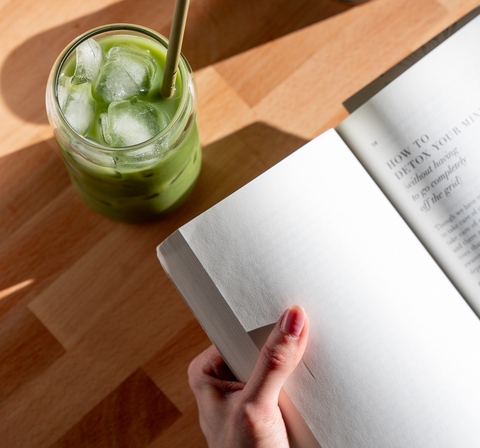
How to Incorporate Matcha Into Your Diet
Traditional Matcha Preparation
Preparing matcha is a simple process, and here's a step-by-step guide to assist you:
-
Start by sifting the matcha powder into a bowl using a fine mesh sifter. This crucial step ensures the removal of any clumps, resulting in a smooth texture.
-
Heat the water to around 175°F (80°C) and carefully pour a small amount (approximately 2 oz) into the bowl containing the sifted matcha.
-
Take a bamboo whisk (chasen) and vigorously whisk the matcha and water in a zigzag motion until it becomes frothy and well combined. The goal is to achieve a smooth and creamy consistency. Don't worry if you don't have a chasen; you can also use an electric whisk, frother, or blender to achieve similar results.
Matcha Smoothies
Enhance the nutritional value and infuse your cherished smoothie recipes with a distinctive and delightful flavor by incorporating a generous amount of vibrant green matcha powder, brimming with antioxidants and essential nutrients, elevating your daily dose of nourishment to a whole new level of healthful indulgence.
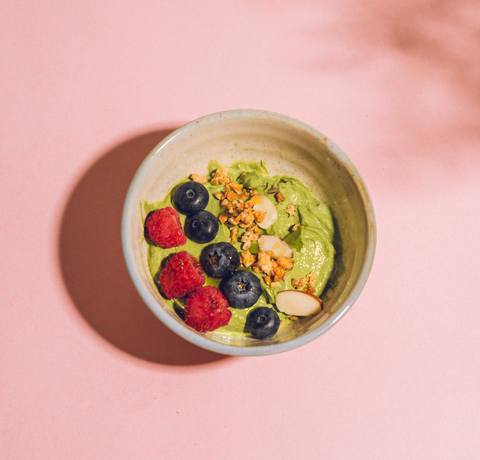
Matcha Lattes
Prepare a matcha latte by combining matcha powder, steamed milk, and a sweetener of your choice for a creamy and comforting drink.
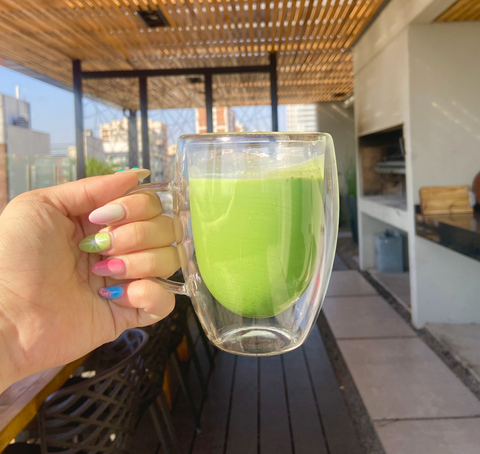
Conclusion
In conclusion, matcha does not universally cause immediate bowel movements, act as a laxative, or induce diarrhea. Individual reactions can vary, and moderation is key when consuming matcha tea or any caffeinated beverage. The benefits of matcha, such as its antioxidant properties, improved mental focus, boosted metabolism, and potential support for digestive health, make it a valuable addition to a balanced diet.
FAQs
1. Does matcha contain caffeine?
Yes, matcha does contain caffeine, but in moderate amounts compared to coffee.
2. Can matcha help with weight loss?
Matcha may support weight management due to its potential impact on metabolism and fat oxidation.
3. Is matcha suitable for pregnant women?
Pregnant women should consult their healthcare provider before consuming matcha or any caffeinated products.
4. Can matcha cause allergies?
Like any food, some individuals may have allergies or sensitivities to matcha. It is essential to monitor your reactions when trying it for the first time.
5. Is matcha safe for children?
Matcha can be safe for children in moderation, but parents should consider their child's tolerance to caffeine and potential sensitivities.
Disclaimer: This article is for informational purposes only and should not be considered medical advice. Always consult with a healthcare professional before making any changes to your diet or lifestyle.

